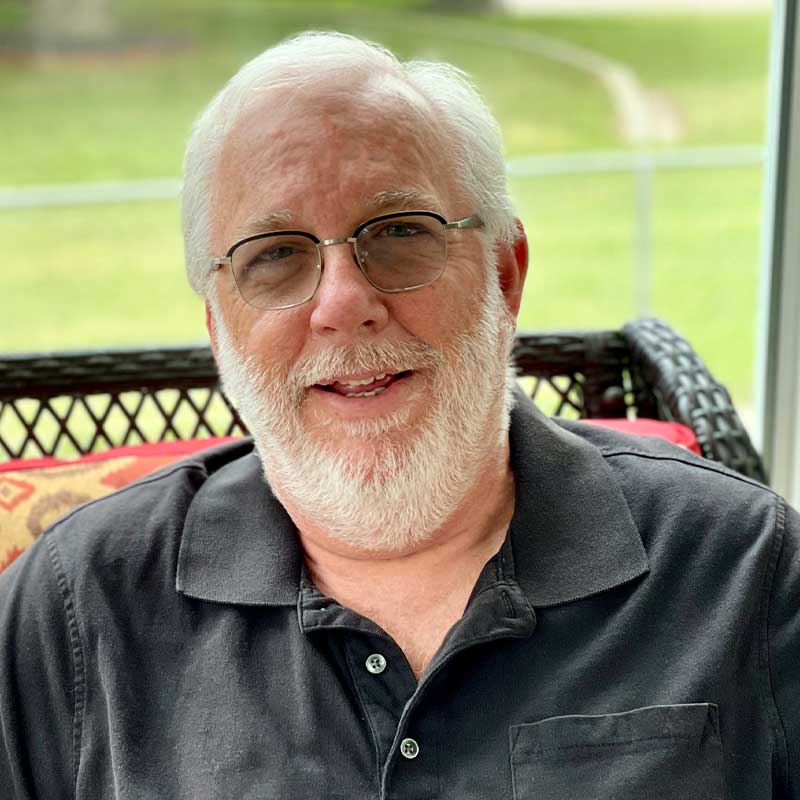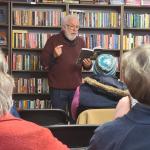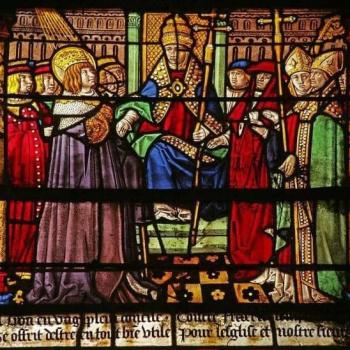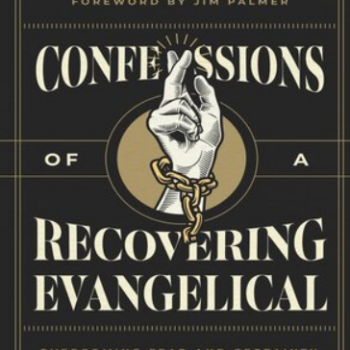There is faith. And then there is what people say that faith is.
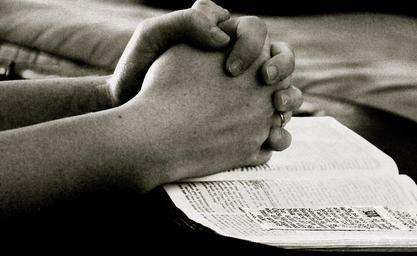 The two are dramatically different.
The two are dramatically different.
I want to tell you about a friend of mine from High School. I’m going to use the name David, since I still want to respect the privacy of his wife and children, and probably by his grandchildren.
You see, David died a few years after we graduated from the same high school. I was David’s best man at his wedding and David and his wife had two children within a couple of years.
But what I want to share with you is something that David said to me from his hospital bed as he lay dying from cancer. Some people had been coming to visit David and prayed for him and “claimed” his healing. It was their view of faith that you can “name it and claim it.” In other words faith is about having the right mental attitude toward God, and believing hard enough so that God will grant your wishes. It is the heart of the so-called “prosperity gospel.” More about that in a moment.
Let me tell you a bit more about David
David and I became friends through our local church youth group. I was surprised when David came to church because having been an acquaintance of his prior to that at school, he seemed to be in the “tough crowd.” He was a hoodlum biker type, which in that era was something you wanted to steer clear of, if you knew better.
I think one of David’s other friends invited him to church, witnessed to him, and he ended up giving his life to Christ in a conversion experience. It was in the church youth group and associated social activities that he and I became friends and began to hang out together.
Most of our other friends went to the High School across town. It was the “upper class” high school where kids with big houses and rich families went to school. I doubt that was universally true, but it was the impression of the time. David and I and a couple of others from the youth group were relegated to the “working class” high school on the west end of town, near the river. Sometimes we were called “river rats.” But David and I palled around at school and of course attended youth group meetings and activities.
David was not a studious fellow and he and I were an unlikely friendship. I was interested in school and earned a pretty good grade average. David cared very little about school, and I noticed he had a hard time reading books sometimes. In fact, one time he asked me to go plead with a teacher to not fail him in a literature class we were both assigned to. I did go in and plead his case and tried to get the teacher to at least give him a break and a barely passing “D” grade. She appreciated my attempt, but said that she just couldn’t do it because, well, David hadn’t even handed in one assignment. Later when I became a teacher, I understood her predicament. It would have been wrong, unethical, and unfair to David to inflate his grade.
I don’t remember if David ever graduated from High School but I think he must have sooner or later. But one thing he was good at was cars and motorcycles. He could change brakes, tune a car engine, and seemed to have no problem reading a car technical manual. David was a street-smart sort of guy.
The thing I remember most about David is he had a heart of gold. He loved the underdog and was always available to help someone that needed help. He found ways to talk to people in his natural, unassuming verbiage about Jesus. He wasn’t pushy, but he did seem to break through to a few people that were his biker associations. He never turned his back on them either after becoming a Christian. David was a loyal friend. I think his changed life made an impression on them more than anything and I never heard any of them tease him for having “religion” at least not in a mean sort of way.
After I graduated from High School I went to a Bible college to learn as much as I could about the Bible. It was only about a year out of High School that I heard from David that he was getting married. He had met a young lady from our youth group and they had been going together for a long time, so I wasn’t surprised. I was surprised that he asked me to be his best man and frankly I was honored to do so. So sometime in the mid-1970’s I attended David’s wedding and saw he and his bride off to their new life together.
The Name It and Claim It Theology
It was about that time that we all became involved in a Christian Fellowship home church that grew out of the “charismatic movement.” The “faith” movement it was sometimes called or the “word of faith” movement. Many of my prior youth group friends who were now adults, were getting on in this movement and I joined up too. I had my doubts and reservations about the whole thing, but I did my best to pretend to be “one of them.” Going away to college put some distance between me and some of the worst aspects of this group and the larger movement and for that I was glad.
David and his wife were involved in this fellowship group and pretty soon they had a baby. If I recall, I think they ended up with two children. By 1980 I had gotten married and started my career as a teacher in a nearby city. And by 1983, along came my first child. So as lives get busy you lose or at least slow down your contact with old friends. But they are still your friends.
That is why it was a shock when I later found out that David had cancer and didn’t have long to live. My heart broke for him and his wife and children. He was a great father and husband. As the cancer progressed David was in the hospital, and I knew I needed to go see him as he didn’t have much longer to live.
As I entered his room it was just him and me, and I could see immediately he was failing. I told David I was so sorry this was happening to him. He looked at me and said, “I guess I just don’t have enough faith.” I asked what he meant, and he said others that had come by to pray with him told him they had “claimed” his healing, but it was up to him to have enough faith so that God could heal him. Since he wasn’t getting any better he assumed it was his own fault and he didn’t have enough faith.
I was shocked when I heard him say that. Then I was angry, and then…livid. I kept my composure for his sake, but I told David in no uncertain terms those people were just wrong, this wasn’t his fault and he should not feel guilty about it. I told him I had no idea why this was happening to him but I knew for sure it wasn’t due to a lack of faith on his part. I felt horrible for David. And then I wondered what kind of people would heap that sort of guilt on a dying man?
What Is Faith?
And that is where I want to go with this story. The definition of faith that so many in the evangelical movement have adopted is equated with right belief. Having right beliefs and believing hard enough that God will intercede on your behalf is how faith is defined, particularly in the current charismatic and apostolic movements that are associated with Christian Nationalism.
I don’t think this is faith so much as it is wishful thinking. And it is very narcissistic. To believe that any given human has the ability to affect the actions of a “sovereign God” if they believed hard enough is incredibly arrogant.
And what kind of God sets around waiting to see if humans will believe hard enough to satisfy his need for attention so that he will then decide to deliver them from their suffering? And if they don’t believe enough or in the right way then just too bad. Truth is, this isn’t “God” and it isn’t “faith.”
This attitude turns faith into a commodity that you can acquire if you pray hard enough, give enough money, volunteer enough of your time, and sacrifice enough of your life to “serve God.” The more you do these outward things, supposedly the more faith you have.
Faith is something to be chased, earned and even something to be bargained for. Have enough faith and God will spare your life David. If you aren’t healed, then you just didn’t pray through hard enough or believe enough or maybe didn’t give enough money to God. Your death is your own fault. This view of faith is cruel, heartless and is manipulated and exploited by people many times for their own financial gain.
The Street Peddlers of Prosperity Gospel
In the 1970’s it was the Godfather of the faith movement Oral Roberts who popularized this message and made a cool $110 million in annual revenue doing so. The message was clear, send me money, believe hard enough, and God will bless you many times over.
Today it is people like Creflo Dollar, T.D. Jakes, Joel Olsteen and Paula White that are filling their pockets with multiple millions of dollars by preaching this “good news for me and bankruptcy for thee” gospel. They prey on the desperate, the ignorant, the elderly, the people at the bottom of the social scale to turn over their hard-earned money and empty their bank accounts so that they can have private jets and mansions. Those are the signs of God’s favor after all because they have enough faith, and you can have it too if you would just have enough faith and believe hard enough.
By extension, this message also makes poverty, illness, and bad fortune the sign of a lack of faith and God’s disfavor. It victimizes the victims in life, and that brings me back to my friend David.
It was perhaps when I saw the direct impact this distorted message had on my friend, that I began to slowly back away from the whole movement, and eventually evangelical Christianity itself. There were other reasons too but looking at my friend lying in a hospital bed dying and blaming himself for a lack of faith convinced me then that having that view and definition of faith was hokum and at worst, it was evil.
I have had to deconstruct my whole view of faith over the past 30 or 40 years. It took a long time. And when I think of David’s life and the goodness he represented, and the impact he had on the people around him by just being true to himself, I realized he was being faith all the time. David didn’t need more faith. He was being faith by his life and example. And that is the difference. Faith isn’t what you believe, it is what you are…it is being, not believing. And with that we all have enough faith, there is never a deficit or shortage.


